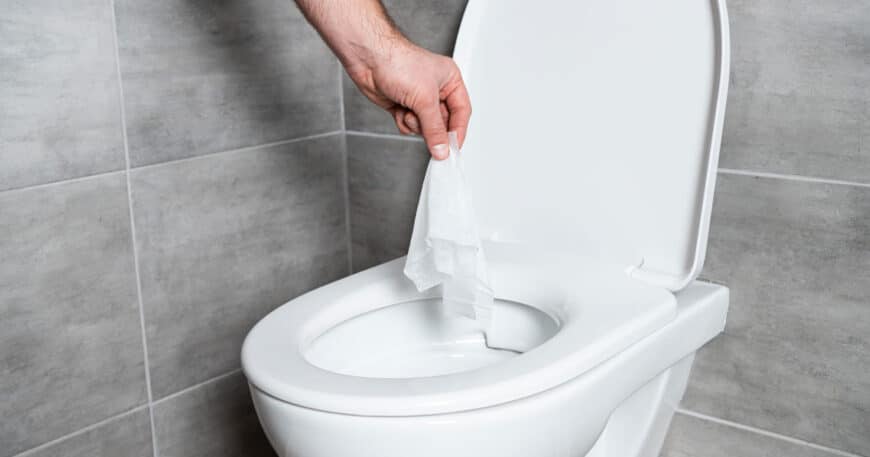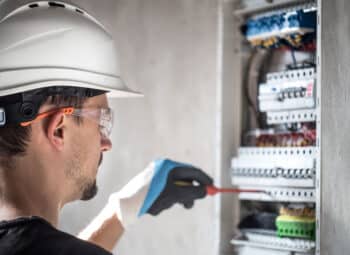If you’ve recently arrived in Thailand, you may have already noticed a surprising bathroom rule: do not flush toilet paper. For many visitors from Western countries, this feels strange. After all, flushing toilet paper back home is completely normal. Yet in Thailand, ignoring this rule can quickly lead to serious toilet paper plumbing issues that affect not only you, but also the property owners, hotel staff, or landlords who have to deal with the aftermath.
In this blog, we’ll explore the reasons behind this practice, how the Thai plumbing system works, what alternatives locals use, and why following the local way is better for both infrastructure and the environment.
The Plumbing Infrastructure in Thailand
To understand why flushing paper is a problem, you first need to understand how plumbing systems in Thailand are designed.
- Narrow Pipes – In many areas, the pipes used in homes and hotels are much smaller than those in Western countries. Toilet paper doesn’t dissolve quickly enough to pass through without causing blockages.
- Septic Tanks – Instead of large-scale sewer systems, many properties in Thailand (especially villas and smaller hotels) rely on septic tanks. These tanks cannot break down paper efficiently, leading to overflows and bad smells if misused.
- Aging Systems – In rural areas or older buildings, the plumbing system may be decades old, making it even more vulnerable to clogs and leaks.
At SmartFix Thailand, we’ve seen firsthand how often foreign guests cause emergencies by flushing toilet paper. One incident can quickly turn into multiple service calls — from blocked toilets to flooded bathrooms and even damaged septic systems.
Toilet Paper Plumbing Issues Explained
Toilet paper may look harmless, but it creates multiple problems when flushed in Thailand:
Blockages in Pipes – Paper sticks together in narrow pipes, forming clumps that block water flow.
Overflowing Toilets – Once blocked, water has nowhere to go, leading to embarrassing and unhygienic overflows.
Damage to Septic Systems – Excess paper fills septic tanks quickly, disrupting the balance of bacteria needed to break down waste.
Costly Repairs – For property owners, fixing toilet paper plumbing issues can cost thousands of baht, especially if septic tanks need pumping or replacement.
It’s no wonder that almost every bathroom in Thailand has a small bin next to the toilet. This isn’t optional — it’s the proper way to dispose of toilet paper.
The Bidet Sprayer: Thailand’s Hygienic Solution
Instead of relying on paper, Thais use the bidet sprayer, a small handheld water spray installed next to the toilet. Nicknamed the “bum gun” by foreigners, this tool is one of the most practical and eco-friendly bathroom solutions.
Why It Works Better:
- Cleaner and More Hygienic – Water removes bacteria more effectively than paper.
- Eco-Friendly – Reduces paper waste, helping the environment.
- Protects Plumbing – By minimizing paper use, the risk of clogs is drastically reduced.
For first-time users, it might feel unfamiliar, but many visitors admit they prefer it after a few days. In fact, some even install similar systems in their homes after returning from Thailand.
Tips for Visitors to Thailand
If you’re traveling to Thailand, following these simple steps will help you avoid trouble:
- Don’t Flush Paper – Always use the bin provided next to the toilet.
- Try the Sprayer – It’s part of the culture and a better alternative.
- Carry Tissues or Wipes – Some public restrooms may not provide paper.
- Respect Hotel Rules – Villa owners and hotels display these signs for a reason — to prevent plumbing disasters.
By being mindful of these practices, you’ll avoid unpleasant surprises and respect the local infrastructure.
Real Examples of Plumbing Issues in Phuket
SmartFix Thailand frequently gets calls about toilet paper plumbing issues. Here are some common scenarios we deal with:
- Villa Rentals – Guests ignore the sign and flush paper for several days. Suddenly, the toilet overflows during peak tourist season, causing panic and bad reviews for the property owner.
- Condo Buildings – Shared drainage systems mean one tenant flushing paper can cause issues for multiple units. Water backs up, and emergency plumbers have to clear the system immediately.
- Hotels – Even when staff leave clear signs, some guests assume it’s optional. Repairs often need to be done overnight to avoid disturbing other guests.
In each case, the solution is the same: stop flushing paper and educate users. Unfortunately, by the time SmartFix is called, the problem is usually messy, urgent, and costly.
What Happens If You Keep Flushing Toilet Paper?
You might think, “It’s just one small piece — what harm could it do?” But over time, these small actions add up.
- The first few pieces may pass through.
- Eventually, paper builds up in the pipe, reducing water flow.
- Wastewater begins to slow down, leading to backups.
- Toilets overflow, septic tanks clog, and the system fails.
The worst part? These repairs are not cheap. Depending on the severity, property owners might need professional drain cleaning, septic pumping, or even full pipe replacement.
Cultural Awareness: Respecting Local Norms
Beyond the practical reasons, there’s also a cultural side to this practice. In Thailand, the bathroom system is designed around water use, not paper. Understanding and respecting this rule shows cultural sensitivity. Just as you’d follow customs about shoes in temples or greetings with a wai, you should also follow bathroom etiquette.
Eco-Friendly Benefits of the Thai System
Interestingly, the no-flush rule also benefits the environment:
- Less Paper Waste – Reduces deforestation and industrial paper production.
- Lower Energy Use – Manufacturing toilet paper requires a huge amount of water and energy.
- Cleaner Septic Systems – Less waste means fewer chemicals needed to treat septic tanks.
By using the sprayer and minimizing paper use, visitors help reduce strain on Thailand’s plumbing and environmental systems.
Final Thoughts
Thailand’s no-flush toilet paper rule may seem unusual at first, but once you understand the reasons, it makes perfect sense. The country’s plumbing systems simply aren’t designed to handle paper, and ignoring the rule creates toilet paper plumbing issues that cost property owners thousands of baht every year.
The solution is simple: use the bin provided, try the bidet sprayer, and adjust to the local way. Doing so will make your stay more comfortable, respectful, and eco-friendly.
For property owners in Phuket dealing with clogged toilets, overflowing septic tanks, or other plumbing emergencies, SmartFix Thailand is here to help. Our team provides fast, reliable, and guaranteed repairs to keep your property safe and your guests happy.
👉 Need urgent help? Request service today




